Sean Jacobs's Blog, page 549
March 18, 2012
New films roundup N°1
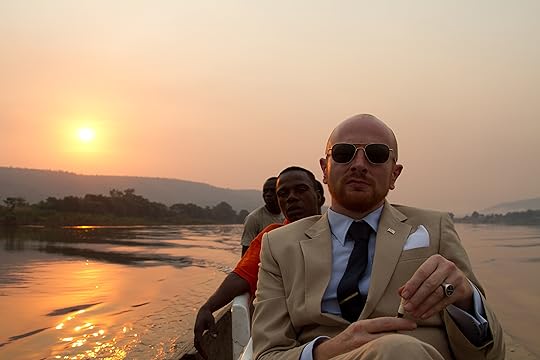
Here's my latest list of new films with African topics. From now on I'll number them. So this is N°1. My plan is to become more systematic and regular about it and drop a list of 10 at a time. I also hope to do it once a week. (If I can't, I am hoping Basia will pick up the slack.) First up, is "The Ambassador" classed as a documentary film by Danish comedian/film director Mads Brügger as a fake European ambassador in central Africa. I recently watched his last film, "The Red Chapel", on Netflix. It is a rambling trickster movie where Brügger and two disabled actors of South Korean descent (adopted by Danish parents) travel to North Korea in an attempt to outwit his hosts' censors. The result is tedium, driven by his droll delivery style. In the end, I was less interested in Brügger's antics (even his two co-conspirators tire of him), so I am not sure what to make of this new project. Here's the trailer:
"e'Lollipop" (1975) was an Apartheid teenage buddy movie between two boys, one black and one white. The sort of thing that did well with Apartheid's censors. Now there's a sort of sequel focusing on what happened to the black lead in real life:
Nelson George, who directed "Brooklyn Boheme" (which I found underwhelming after all the hype), has a new film. "Migrations" is about 'The Liberators,' a group of thieves who steal African art from European museums and galleries (locations include Paris, Berlin and New York City) to return it to the continent. The film stars Tigist Selam and Saul Williams. Chris Rock has a cameo:
Then there's "London River" about a Senegalese immigrant living in France whose son died in the July 7, 2o05 bombings in London:
The trailer for "Fishing Without Nets", a film about Somali pirates, that made it into Sundance 2012 Shorts Program earlier this year:
The trailer for "African Cowboy" by Rodney Charles. "A Namibian cowboy is beaten and left for dead in the vast desert, after standing up to a trans-national posse of brutal land-grabbers. However, things change when he's rescued by a mysterious gun-slinger with reasons of his own to get even with the posse" (via Shadow and Act):
Also, via Tambay of Shadow and Act, comes the teaser for the 25 minute Samurai short, "Hasaki Ya Suda" by French-Burkinabe filmmaker Cedric Ido, which joins other continental films with a sci-fi bent like "Pumzi" and Teboho Mahlatsi's "Meokgo and the Stickfighter":
The little older "Mystery of Birds" with its tale of Nigerian immigrant resilience in the United States:
"Kenya Boys", a documentary about four young men trying to make it onto that country's TV version of "America's Best Dance Crew":
Finally, a teaser for "Down" by South African filmmaker Lev David:








March 17, 2012
Music Break. Mokobe
Mokobe commentates on the actions of Rihannon, Naomi Campboule, Rachida Beckham and friends over a Coupé-Decalé riddim. The music production is pretty standard, but the video is at least funny.

Africa is a Country; the academic edition
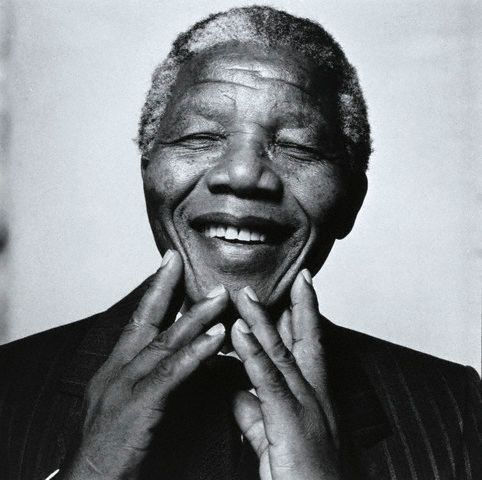
Between them Wayne Marshall and Martin Murray pointed me to these 2 panels at the recent annual meeting of the American Geographical Association that took place here in New York City:
Africa is not a country: Challenges and opportunities in teaching about Africa I (Sponsored by Graduate Student Affinity Group, Geography Education Specialty Group, Africa Specialty Group)
Room: Carnegie Suite East, Sheraton, Third Floor (Panel Session)
ORGANIZER(S): Ryan Good, University of Florida; Amelia Duffy-Tumasz, Rutgers University
CHAIR(S): Kathleen Dietrich
Panelists: Seth Appiah-Opoku, University of Alabama;
Janet Puhalla, Saginaw Valley State University;
James Saku, Frostburg State University;
Ibipo Johnston-Anumonwo, SUNY Cortland;
Veronica Ouma, Hofstra University
Africa is not a country: Challenges and opportunities in teaching about Africa II (Sponsored by Graduate Student Affinity Group, Geography Education Specialty Group, Africa Specialty Group)
Room: Carnegie Suite East, Sheraton, Third Floor (Panel Session)
ORGANIZER(S): Ryan Good, University of Florida; Kathleen Dietrich
CHAIR(S): Amelia Duffy-Tumasz, Rutgers University
Panelists: Jennifer Bjerke, Rutgers;
Sarah Smiley, Kent State University at Salem;
Hilary Hungerford, University of Kansas;
William Y. Osei, Algoma University
Anybody who attended and who has some feedback?

Africa @ SXSW: A Twitter analysis of #Kony2012
Data Scientist at the New York City start up SocialFlow, Gilad Lotan, analyzes social media data. AIAC met Lotan at SXSW and asked him what he has found out about how Twitter was used for #Kony2012.








Africa @ SXSW: What can we learn from #Kony2012?
What people think about #Kony2012 is now somewhat coloured by the public meltdown of one of its co-leaders Jason Russell (he was arrested yesterday in San Diego for exposing himself, and hospitalized). Nevertheless, Invisible Children's methods of organizing and use of social media still needs to be debated (through written before Russell's meltdown, here's a good take on the organizational model of Invisible Children and its implications by researcher Dana Boyd). So #Kony2012 was definitely going to be on the agenda at this year's SXSW. Posters were already up on walls and somebody even painted Joseph Kony's picture on the streets of Austin. The festival added two last minute panel discussions to the program. AIAC was there for the second one, but unfortunately, we didn't get a chance to speak with someone from Invisible Children. Instead, however, we had a chat with Uganda-born panellist and co-founder of Project Diaspora, Teddy Ruge, and with Sam Gregory, program director at Witness. (During the discussion a google document was created and it is open for everyone to read and edit.)








Africa @ SXSW: filmmaker Idriss Kpange
Idriss Kpange is a filmmaker from Sierra Leone. AIAC met him at SXSW earlier this week to chat about making film in Sierra Leone, the constraints he and other filmmakers face, and about a new humanitarian film festival called 'Open Your Eyes' in the capital city Freetown, which Kpange is organizing.








George Clooney's Sudan movie
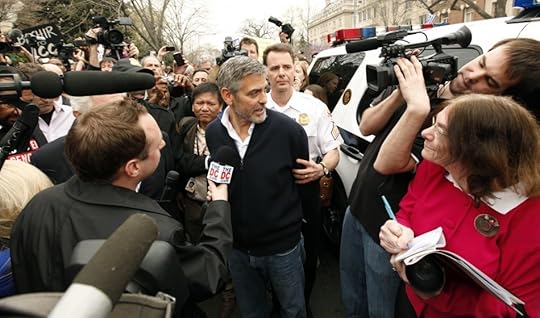
Now that George Clooney got arrested (and got out on a nominal $100 fine) along with a few other campaigners while 'raising awareness' on war crimes in Sudan, people who should know better (like NAACP president, Ben Jealous) are drawing comparisons to those who protested outside the Apartheid South Africa's embassies and consulates. Jealous even added that this was a message to the Sudanese president, who will undoubtedly be moved by the thought that the "United States Congress is watching." Not surprising Sudan's Embassy took little time in mocking Clooney. They released a statement calling Clooney's arrest a "show that could possibly earn him yet another Golden Globe."
Clooney's father, journalist Nick Clooney, told reporters afterwards that the Sudanese "drama" has "scarred" both him and his son for many years now, while Clooney himself spoke charmingly about how the "rainy season" is about to be on its way, preventing food aid from getting to needy villagers who were getting bombed by their own maniacal government. Clooney's been getting lots of attention this week. Every media outlet now reports on Sudan. Even PBS, not normally known for asking celebrities about foreign policy were mesmerized by Clooney.
Here's a PBS presenter telling Clooney (sitting next to Enough Project's John Prendergast) "you've been consumed by this issue." Clooney then talks again about the rainy season and how the Nuba people live in villages and "are the oldest society on earth if you're reading the Bible":
Enough Project also shot a gruesome video with Clooney in the Nuba mountains. No one can argue that an aggressor regime (as Sudan does) should stop "using food as a weapon; stop slaughtering innocent men, women and children; and stop spitting in the face of the world community," as Democratic Representative from Massachusettes, Jim McGovern said.
The renewed interest in Africa and its war criminals, including the now famous Joseph Kony, brings to mind that the International Criminal Court (ICC) has a disproportionate number of Africans on its hit list. (This week the ICC arrived at its first verdict in years–as Angelina Jolie watched in court–in 10 years when it sentenced a Congolese war criminal for conscripting children. But as This is Africa asked recently, "'Hold on. Is it really possible that only Africans commit crimes against humanity?' That seems unlikely, so why then is the ICC focusing its efforts exclusively on Africa?" Or has the ICC become "a stick with which the west can continue to beat Africa and put it in its place," with the aid of a host of celebrity drumbeaters, the latest of whom is Clooney? And why is there never any mention of America's craven refusal to join the ICC?
As long as the famous and the powerful in the U.S. (who don't have to fear being arrested on nominal charges) are taking such a public stance against African dictators, let's make sure that war criminals in the U.S. itself–those who unleashed destruction on innocents away from the concerned eyes of Congress and Hollywood–are similarly hounded. But perhaps a call for fair prosecution of all human rights abusers wouldn't help garner the same adoration from CNN reporters.








March 16, 2012
Friday Music Bonus Edition
Five for the weekend. First up, via AfriPOP!, Nomswa Mazwai's new video for her song 'Nguwe.' Then, Vox Sambou (below) and The Narcicyst tell how they read 'Article 14′ and its relation to Haiti's recent history (channeling Noam Chomsky).
The French presidential elections keep the local artists entertained. This is how Nëggus sees them:
In the following video, YaoBobby and friends (who, like Nëggus, are based in Paris) first chat (in French…for 5 minutes) about the ideas behind and the making of his latest album, Histoires d'un Continent. After which they play a 15 minutes showcase:
Finally, Brooklyn's Santigold performing 'Disparate Youth' at the FADER Fort at the SXSW in Austin, Texas, now less known for its music and debates than for obnoxious media stunts:








'Maasai Cricket Warriors'
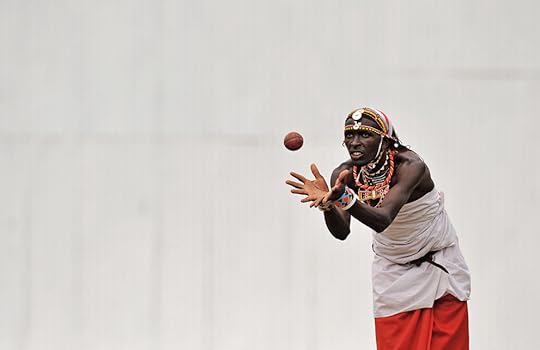
The Maasai bear the weight of being one of the original noble savage dream tribals that the British and the Germans salivated over (in India, the Sikhs play the role of the exotic, animal protein-loving warriors, whose aggression got recruited into the Crown's loyal service). The Maasai are such a standard-bearing cipher for all that 'modernity' regards as unadulterated, wild masculinity that a recurrent news story in Northern Euro/Brit tabloids is one where some random white European woman visits East Africa, meets the fabulousness that is the Maasai/Samburu warrior, and takes him back to her cold homeland. Then, there's the inevitable photo of him bagging groceries at the local Aldi or Tesco (and his whole masculine juju is gone.) But here's something different: the British newspaper The Telegraph, and US magazine The Atlantic (online) are running photographic galleries of strapping "Maasai Warriors" in full beads-and-braids regalia playing cricket. The Maasai Cricket Warriors have been training in the port city of Mombasa, at the Legends Cricket Nursery. They are hoping to travel to South Africa to take part in the Last Man Stands World Championships (what a name), and are raising funds to make the trip.
[image error]
And why are the Maasai playing cricket? From these media we learn that this group of "young Maasai warriors" from the Laikipia region formed a cricket team with the hope of promoting "healthy living," and spreading "awareness about HIV/AIDS and women's issues." Ultimately, they want to "become role models in their community and ambassadors for both the Maasai and Kenya." We don't learn why the group chose cricket, or how they were initially trained about the basics of the game. However, we learn that Meshami, who was born in "a remote village in the Rift Valley area," and "the youngest in a family of nine children" was unable to attend school, but that "he helped his family tend their herds of goats and sheep." He tells his sponsoring public that he "mastered the art of throwing a spear at a very early age and I also became good at throwing stones long distances. The aim of the spear was never to harm or hurt any wildlife, but rather as a protection if ever I had found myself in a one-on-one situation having to fight for my own life."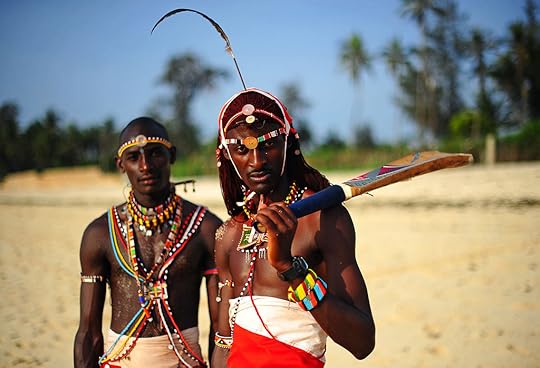
Clearly, it's all good stuff here: this is a group of young men doing some stand-up work to elevate their communities. Instead of remaining helpless and backward, the men are motivated, responsible, self-actualising. How refreshingly modern! Besides, the photographs are beautiful, well-conceptualised jewels.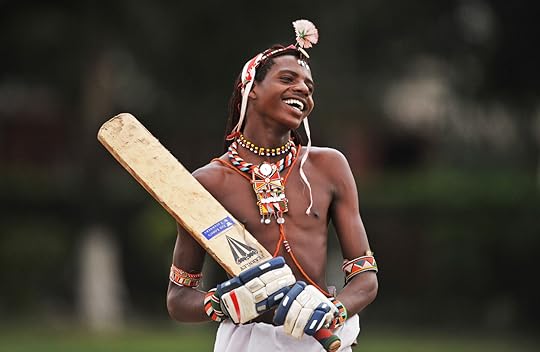
But these young men still carry that old weight: being Maasai means that they must carry on playing the picturesque warrior. That also means being stuck on replay: highland-fit, ochre-smeared, spear-carrying, and looking good next to large herds of cows, while BBC nature-show commentators tell us all about how bovines are the Maasai's cash, even though they cause ecological damage.
We never get told that the characteristic red tartan-patterned blankets so ubiquitously associated with the Maasai were actually given to them (to hide their nakedness) by Brit/Scottish missionaries.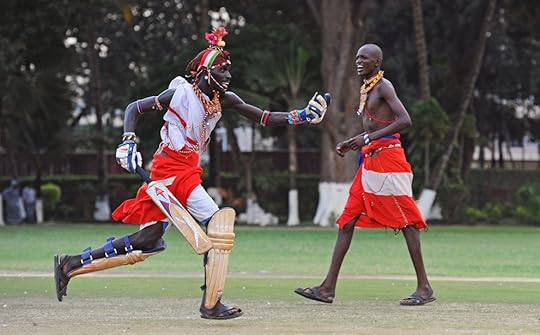








Sathima Bea Benjamin's Windsong
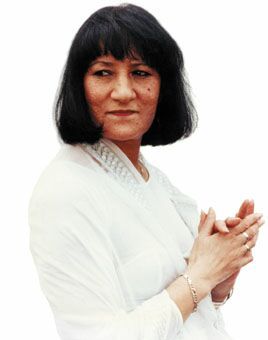
Last year, Sean and I happened to be at a conference in Toronto where Dan Yon was showing his film on Sathima "Bea" Benjamin, the Cape Town-born jazz singer. Although she is one of the formative figures of South African jazz music, it is her estranged husband, jazz pianist Abdullah Ibrahim, who is far better known. The film, "Sathima's Windsong" (2010) moves back and forth between New York City, where Benjamin was a long-term resident, and Cape Town, where she began singing as a young girl during the forced removals instituted by the Group Areas Acts. The narration bridging the two cities, and Benjamin's multitude of losses (and gains) is interspersed with the melodic imaginative leaps that only a voice such as hers can bridge. Only her voice lies between two cities, and immeasurable, oceanic longing: her song making tentative vocal incursion and excursions, in and out with the tide and forces beyond her control.
Here's the trailer:
Although Benjamin was born in 1936 in Johannesburg, she was raised in Claremont in Cape Town. After the Afrikaner nationalist National Party came into power in 1948, her grandmother, who was from St Helena, received notification that she was now classified as 'Coloured,' and must, therefore, move out of her home. Claremont was henceforth a white "group area." (Later in the film, Yon provides footage of Sathima's sister poking about by the fence outside the home the family lost in Claremont. At the end, unable to really see in to the property, Sathima's sister poses by an old, culled tree trunk, bare and bleached by the sun that she remembered: apartheid may be dead in the books, but still standing stolid, guarding the havoc it created.)
When we meet Sathima, she has been a thirty-two year resident of the Chelsea Hotel in Manhattan's West Village, the slightly-dodgy looking landmark famous for being home to a slew of writers, artists, and musicians. Her rooms there speak to a certain embodied liminality that almost caricatures Benjamin; the passageways are filled to the brim with the boxes and photographs bearing the evidence of an in-between existence. Her imaginative life seems to reside in the city of her youth, whilst her body exists within the confines of the Chelsea, in the city that has supported her adult life. That same in-between quality comes through in her voice — an oceanic movement between notes — characterizing her as something out-of-place and extraordinary in jazz circles. When she speaks about hearing Billy Holliday's voice for the first time, and of understanding, immediately, that this was her jazz soul sister, the resonance between the two voices — both wavering at the point of breaking from estrangement and exile, but always finding a way back to a tethering note — is immediate.
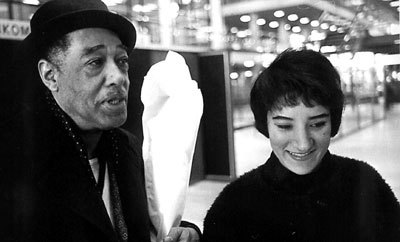
In Yon's film, there is an accessibility about Benjamin, although one feels that she senses that it is to Yon that she provides that access, out of an abiding respect from one artist to another. Benjamin tells about her legendary meeting with Duke Ellington, whilst she was on tour with Abdullah Ibrahim in Europe. As she tells it, Ellington arrives late into the night, during their last set. She charms him, and the rest is history: although her song is cut out of the record (the decision is not Ellington's, but the label's), Ibrahim (and his trio) is included, and he goes on to become world-famous. She and Ibrahim stopped performing together in the late '70s, after Ibrahim made a decision not to perform with her any longer. Although we only get a hint of the enormous difficulty she faced in having to create a solo career in a strange country, she survived Ibrahim's decision. She went on to have a long career as a singer, composer, and producer.
In an incredible twist of fate, in the early 1990s, the mysteriously missing Paris recordings of Benjamin singing the standards, way back in 1963, were rediscovered: they were released as "Morning in Paris" in 1997 in New York City to critical acclaim. It was her return to Cape Town, to perform at the North Sea Jazz Festival (now known as the Cape Town Jazz Festival) in 2001 that helped remind a whole new generation in that country of her voice. (Sean reminds me he was at that concert.)
When Yon's film leaves Benjamin, she is standing windblown on a pier, reminding us of the winds in Cape Town that she adamantly claims she hates. In 2011, the year after Yon's film was released, she moved back to Cape Town. We know that her 'returns' — like her voice — are never on a firm footing. But that very quavering thing that drives your ear crazy is at the centre of Benjamin's appeal.
Listen to Dan Yon speak about "Tidalectics, Cosmopolitanisms, and the Making of Sathima's Windsong."
* Benjamin is also the subject of a full-length study of her life and work that she co-authored with University of Pennsylvania musicologist Carol Muller. (Sean reviewed it for an upcoming issue of the academic journal, The International Journal of African Historical Studies.)








Sean Jacobs's Blog
- Sean Jacobs's profile
- 4 followers


















